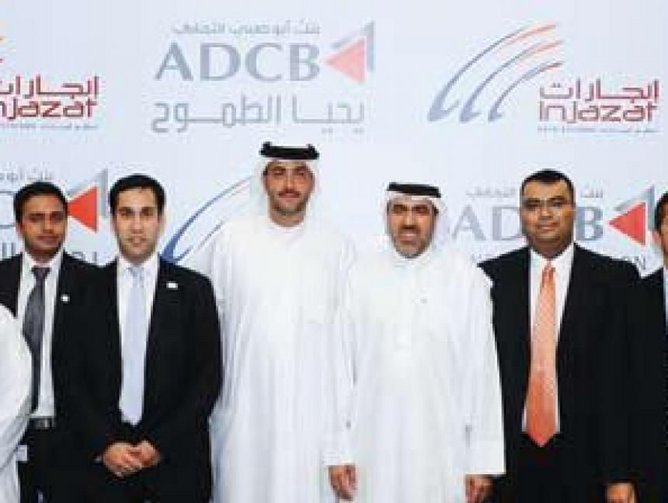Injazat Data Systems: next level services in the UAE and beyond
A major managed IT services company in the UAE is looking forward to continue leading its industry.
Fully owned by Mubadala, an investment arm of the Government of Abu Dhabi, Injazat Data Systems has been tasked with nothing less than transforming the ICT landscape of the UAE through innovation by forming global partnerships. Following almost 12 successful years of operations, the company is expanding its service offering to clients in the form of cyber security, business applications, IoT, and a greatly enhanced range of cloud capabilities.
Head of Sales Eddie Cunningham was instrumental in setting up Injazat in 2004/5: “Over the years we have gone through a number of transformations and transitions. The one that we're involved in right now is probably one of the most significant ones, since the whole dynamic of the IT services market is changing.
“If you look at the market globally, many of the other players are going to or have gone through some pretty tough transitions. We have had the benefit of being one of the biggest regional players in a fairly buoyant marketplace. So we managed to gain a dominant position but we haven't been complacent about that, so what we're focused on is the next level of growth.”
Operations
The core of Injazat’s offering to the UAE market consists of enterprise cloud, IT outsourcing, and data centre-managed services alongside enterprise applications and a range of learning capabilities. What makes this offering stand out amongst the other players is down to the company’s ability to make the global more local.
Cunningham says: “We are in the marketplace for medium to large GCC enterprises where they can effectively make use of globally available applications that will have the ability to have data and business analytics.
“We have expertise particular to a range of industries. Within the apps teams, for example, we have experts who make sure the HR systems meet the requirements of the Abu Dhabi and the UAE government.”
In order to further enhance its customer offerings, the company is also looking to drive down the cost of its services as much as possible, and it is achieving this by automating processes while working to boost customer engagement. Cunningham adds: “All of which improves the quality of the user experience and drives down the cost of service.
“We are continually working as we seek to improve the technologies that we're using and particularly as we move into the cloud space, where we're looking at getting the best value for money but also the highest levels of service and availability from the infrastructure that we're using.
“There are continuous improvement programmes in the organisation. Each looks at how it can improve the quality of the service Injazat can deliver and we also run regular client satisfaction surveys.
“A caller will get an email asking if they would please rate the quality of service they received and, on a broader basis, a couple of times a year we undertake a sample survey of senior level clients so they can give us feedback on the quality of our services, from which we can derive service improvements.”
Such is the depth of Injazat’s knowledge across its verticals, it is eyeing up regional expansion, with Qatar, Oman, Kuwait, Bahrain and Saudi Arabia in its sights.
Talent management
“Back in 2006/7 we took the in-house training requirements we had and turned them into what we call The Injazat Institute (TI2),” Cunningham explains. “We started off focused exclusively on training in tools and technologies, and developed some of the softer skills like presentation and negotiation techniques.”
And that’s the crux of Injazat’s training philosophy today – a programme of skills that aims to develop technical and broader professional skills that delivers for the company, its customers, and its partners. The company is also committed to becoming an incubator for local talent, which is why it has ensured that over 15 percent of its 800-plus strong, multi-lingual workforce is made up of Emiratis at every level of the business. So much so that it is an embedded KPI in the company’s corporate management performance system.
Cunningham adds: “The Injazat Institute leads the charge on interns, bringing them up to speed but also beyond that, it is now involved in selecting training and career development alongside our partners. One example is for our security awareness and cyber security training - a big topic globally but especially in the UAE.
“We teamed up with organisations like Kaspersky for everything from security awareness training, right the way up to security specialist training to improve the quality of cyber security and capabilities within the region.
“Looking at the general trend in technology, costs are going down. So to balance that we are looking to expand the range of services we offer so we maintain the service growth we have had over the last few years,” Cunningham concludes. Having developed a now very well-established track record working with both government and important private sector players, Injazat is now looking forward to ushering in the next generation of innovations, both as part of its remit and the greater UAE.
Earlier this year the company ran the first GCC Business Innovation Summit in Abu Dhabi, and intends to make it a regular event. With around 200 C-level executives in attendance – from the UAE and further afield – the event focused on cyber security and how to manage down the cost of delivering IT services. This is another example of how Injazat is pursuing every possible method to ensure that the country is both a regional and global technology leader.





